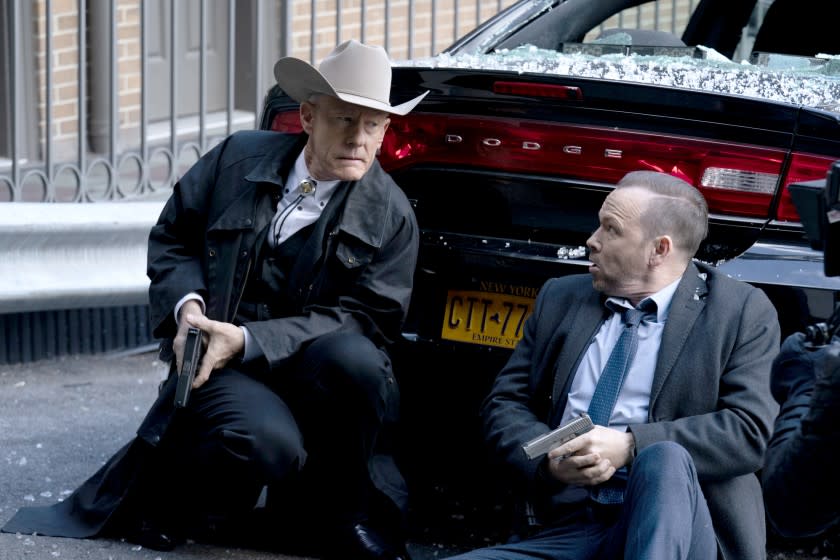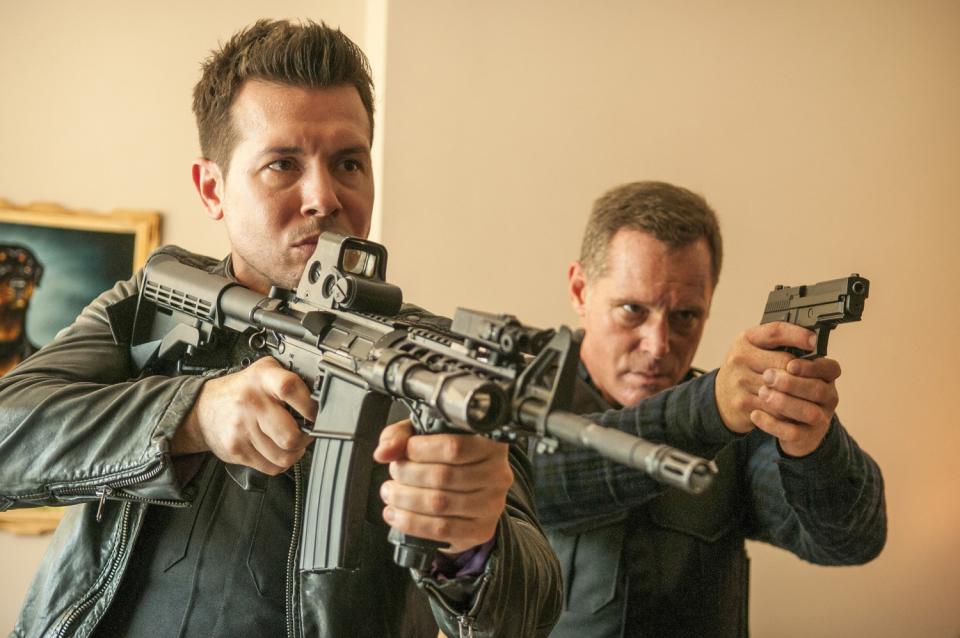Want to talk about policing on TV? Here are some damning stats you should know

For more than a week now, our screens have been flooded with footage of cops shooting rubber bullets at reporters, driving police vehicles into crowds of protesters, detaining essential workers exempt from curfews, macing a 9-year-old child, shoving elderly people to the ground and, of course, kneeling on the neck of George Floyd until he died.
But such horrifying real-life images are at odds with the fictional portrayal of law enforcement we've consumed on TV for decades. Amid nationwide protests of police brutality against black people and other marginalized groups, that dissonance has spurred an industry-wide reexamination of the role pop culture plays in shaping our perception of both the police and the people they deem a threat. Nonprofit civil rights advocacy organization Color of Change released a detailed study on the topic earlier this year.
"[These shows] create a world where we have cities, police officers, political officials, poverty, different races, and yet racism doesn’t seem to exist — a fictional world that is often quite diverse but without racism," Rashad Robinson, president of Color of Change, told The Times this week. "As a result, that normalizes injustice. It makes it seem like the changes that we are fighting for are changes that are not necessary."
Titled "Normalizing Injustice: The Dangerous Misrepresentations That Define Television’s Scripted Crime Genre," the study includes the following findings.
Crime shows are largely created and written by white people
Of the 26 series from the 2017-18 season examined in the study, 21 had showrunners who were white men. At least 81% of these shows' writers were white, compared to the 9% who were black. A whopping 20 of 26 series had either no black writers or just one black writer.
CBS and NBC aired seven of the nine series that were the least diverse with respect to race and gender:
On CBS:
• "NCIS" was 100% white and 80% male.
• "Blue Bloods" was 100% white and 75% male.
• "Elementary" was 90% white and 70% male.
• "NCIS: Los Angeles" was 82% white and 82% male.
On NBC:
• "The Blacklist" was 93% white and 80% male.
• "Law & Order: Special Victims Unit" was 93% to 100% white and 57% male.
• "Blindspot" was 92% white and 58% male.
• "Chicago P.D." was 80% to 90% white and 60% male.
Characters of color are often written by largely white writers' rooms

Racism is generally nonexistent in these shows
When wrongful acts are committed by cops, they're normalized as harmless or noble
These actions were rarely objected to or acknowledged as unlawful by other characters, and therefore were categorized as "part of the job." Many times, characters played by people of color were depicted as endorsers of these actions. Excessive force was rarely depicted.
As a result, the crime shows studied generally reinforced the idea that what police (and other criminal justice professionals) do is "right" simply because they are police.
Police rarely face any consequences for wrongful acts they commit
Read the full study here.
Meredith Blake contributed to this report.

